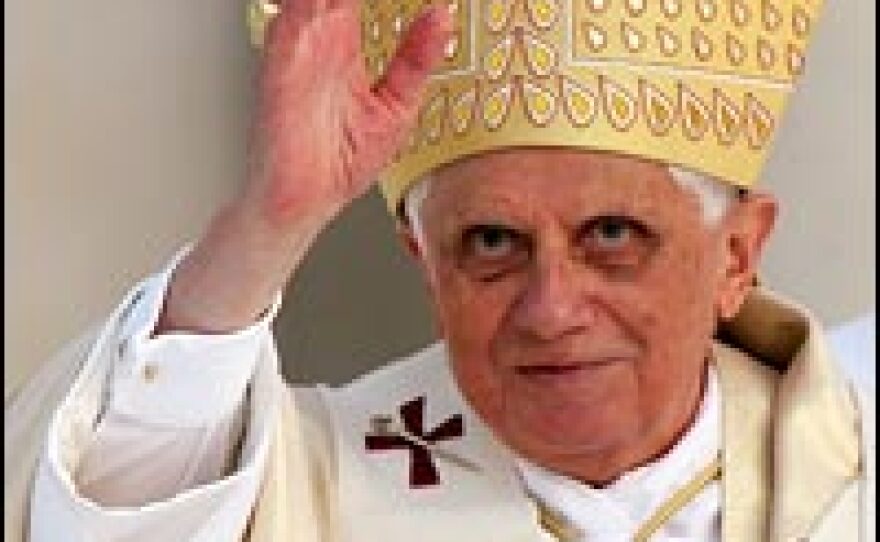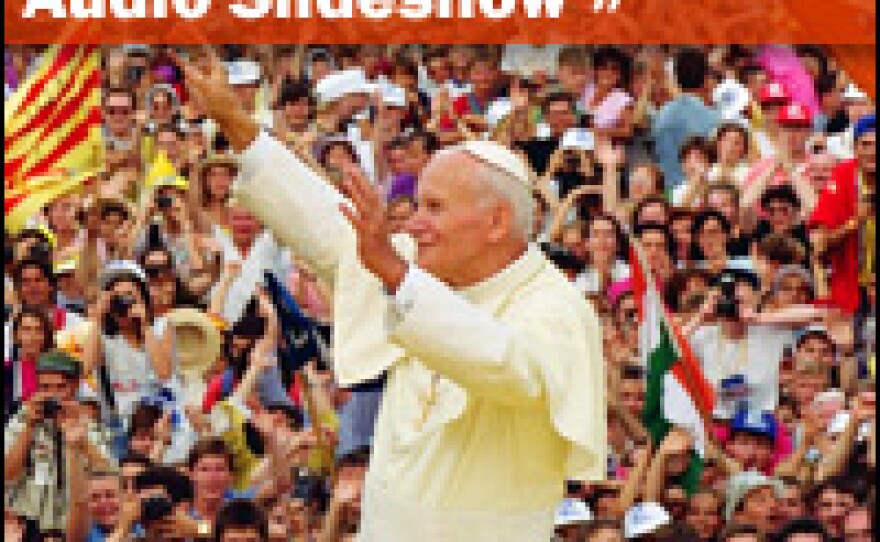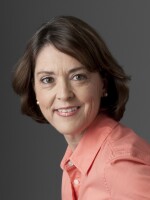

When Cardinal Joseph Ratzinger became Pope Benedict XVI in 2005, liberal Catholics wept in dread and conservatives wept in joy. He had been known as "God's Rottweiler" because of his quarter-century heading the Vatican office that oversaw doctrinal purity among theologians. But many people have been pleasantly surprised by his papacy so far.
Earlene Capers and two dozen other volunteers at Holy Comforter-St. Cyprian Roman Catholic Church in Washington, D.C., recently served up about 300 meals during a Good Friday fish fry. This African-American parish, located on Capitol Hill, is buzzing about the pope's pending visit to the nearby Washington Nationals' baseball stadium during his first-ever trip to the U.S.
Bill Brousseau, the assistant fry-master, is drawn to the pope's academic side. He's also impressed by his emphasis on the positive.
"If he continues with his message of love, hope and charity, it will be extremely beneficial," Brousseau says. "What he's saying now is consistent with where I think we should go, not only as Catholics, but as a nation and the world."
But while Brousseau may see Benedict as a gentle pope, Rudy Robinson, a retired police officer, sees him as a theological tough guy.
"The pope is coming here to say, 'Listen, I'm just the enforcer. I'm bringing you the word of what you should be doing. Now what you do and what you should be doing is two different things,'" Robinson says.
Good Pope, Bad Pope
The pontiff who has emerged over the past three years is more nuanced than many people expected. David Gibson, author of the biography The Rule of Benedict, recalls the moment Ratzinger emerged wearing the pope's white robes.
"He comes out on the balcony of St. Peter's Basilica, and everybody's thinking ... that he will be the 'Panzer Pope,'" Gibson says.
But Benedict did not excommunicate a rash of liberals as some conservatives wanted, and he pleased the conservatives by reviving the Latin mass. Liberals are happy that, instead of stern lectures, he has issued encouraging writings on hope and love. Gibson says Benedict shifted instantly from the stereotypical bad cop to a good cop — the man who presents Catholicism as an appealing alternative.
"He wants to draw people to the faith rather than telling them what's wrong with them and what's wrong with the world," he says. "On the other hand, it's clear that he has not abandoned that great concern for relativism."
Relativism is the popular notion that there is no absolute truth, only a range of religious or moral options. Benedict disagrees with relativism and — according to Bishop — sees it as the major battleground of the day. It was on Benedict's mind when he described the world as he saw it to the cardinals on the day before he was chosen pontiff.
"A dictatorship of relativism is taking shape which does not acknowledge anything as definitive and which leaves only one's own ego and its whims as the ultimate measure," he said then.
Unlike Pope John Paul II — who thought he could engage and transform the modern world — Benedict is more pessimistic, says Paul Griffiths, a Catholic theology professor at Duke Divinity School. According to Griffiths, Benedict sees the church as embattled and surrounded by a hostile secular world. Griffiths says Ratzinger gave a clue to his papacy when he took the name of Benedict, after the saint who preserved the faith in the Dark Ages.
"Benedict was the man who founded monasteries that preserved the culture of the ancient world through a period of darkness and difficulty after the fall of Rome and so on," he says. "And I think that's symbolically present in the current pope's mind."
Media Savvy
The 81-year-old Benedict knows he needs to move quickly on his priorities, which Bishop says include a purer Catholic Church, religious freedom and human rights. And while Benedict's theology is virtually the same as his predecessor's, he lacks John Paul's media savvy. Benedict's blunt, professorial style has gotten him into trouble, says Griffiths, as in 2006, when the pope gave a lecture in Regensburg, Germany, and quoted a Byzantine emperor.
"He will get up and give a long nuanced lecture about this or that, not realizing that three sentences will be extracted from it and will be taken to symbolize a whole attitude or program toward Islam in that case. JP [John Paul] would have thought about that," Griffiths says.
Many Muslims were outraged by the emphasis the pope placed on the words of an ancient enemy of Islam. Later, Benedict's spokesman said the pope did not agree with the tone of the Byzantine emperor's comments, but he did not disavow the message — that faith untempered by reason is dangerous.
Benedict also sees danger in unorthodox Catholic theology. Several theologians have been investigated or disciplined for such views as advocating liberation theology or the ordination of women.
"It's a soft intimidation," says Luke Timothy Johnson, a Catholic theologian at Emory University in Atlanta. "Unfortunately, this has led to what I call 'the big chill,' which is to create an atmosphere in which bishops, priests [and] theologians are rather more frightened than they should be."
Johnson is not afraid to speak, since he has tenure at a Protestant institution. But he has felt the pressure to conform. Three times recently, Johnson was invited to lecture at Catholic events, then disinvited when the organizers learned of his liberal views.
That means the pope is doing his job, says George Weigel, a senior fellow at the Ethics and Public Policy Center, who has also written a biography of Benedict.
"What he is responsible for doing is reminding the whole church — the bishops, people [and] theologians — what the boundaries are within which authentically Catholic inquiry and debate takes place," Weigel explains.
He adds that the pope is the custodian of 2,000 years of tradition and he will not simply shift policy as a political leader might.
Faith and Order
At Holy Comforter-Saint Cyprian, parishioner Alice White says she's relieved to see the kind of order Benedict is advocating.
"People are killing people over tennis shoes and bicycles," White says. "We need to get back to 'do unto others as we want them to do unto us,' so I think that's one of the things that I believe he's going to bring to us."
Copyright 2022 NPR. To see more, visit https://www.npr.org. 9(MDAzMjM2NDYzMDEyMzc1Njk5NjAxNzY3OQ001))






